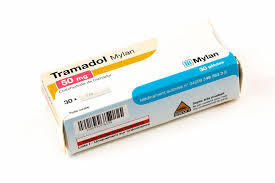Uncategorized
How 100mg Tramadol Affects Sleep: What You Need to Know
How 100mg Tramadol Affects Sleep, Tramadol, a prescription medication often used to manage moderate to severe pain, can sometimes have an unexpected impact on sleep. While its primary purpose is to alleviate pain, the effects of a 100mg dose of tramadol may also influence sleep quality, both positively and negatively. For those managing pain and struggling with sleep, understanding how tramadol might interact with sleep patterns can be helpful.
What is Tramadol, and How Does it Work?
Tramadol is an opioid analgesic that works by blocking pain signals in the brain and spinal cord. Its dual mechanism affects both opioid receptors and neurotransmitters like serotonin and norepinephrine. For some, this can lead to pain relief and a sense of relaxation, potentially helping them fall asleep. However, tramadol’s stimulating effects on the central nervous system can also disrupt sleep for others, especially when used at higher doses like 100mg.
Can 100mg of Tramadol Help with Sleep?
In some cases, the relief provided by tramadol can improve sleep indirectly. Those who experience chronic pain may struggle to fall asleep due to discomfort, and by easing pain, tramadol may make it easier to fall asleep or rest. However, tramadol is not typically prescribed for insomnia or sleep issues due to its stimulating effects on the nervous system.
How 100mg of Tramadol Can Disrupt Sleep
At a 100mg dose, tramadol may lead to side effects that interfere with sleep. Here are some common ways it can impact rest:
- Increased alertness: Tramadol stimulates the release of serotonin and norepinephrine, which may cause a mild “wakefulness” effect. This can make it difficult for some people to relax and fall asleep.
- Restlessness: For some, tramadol causes restlessness or agitation, which can make getting comfortable in bed challenging.
- Vivid dreams or nightmares: Tramadol’s influence on neurotransmitters can sometimes lead to unusual dreams or nightmares, potentially interrupting sleep.
- Sleep disruption: Even when falling asleep, some users may find they wake frequently throughout the night.
Tips for Taking 100mg Tramadol While Managing Sleep
If you’re prescribed a 100mg dose of tramadol and find it impacts your sleep, here are some tips that may help:
- Take it earlier in the day: If your doctor permits, taking tramadol earlier may prevent it from interfering with sleep at night.
- Monitor caffeine and stimulant intake: Avoid caffeine or other stimulants when taking tramadol, as these may amplify its wakefulness effects.
- Establish a calming bedtime routine: Engaging in relaxing activities like reading or deep breathing can help counteract the stimulating effects of tramadol.
- Discuss alternative dosing with your doctor: If sleep disruption persists, consult your healthcare provider. A different dose or medication may be recommended to better suit your needs.
Tramadol and Sleep: A Balanced Approach
While tramadol can help alleviate pain that may otherwise keep you awake, its effects on the central nervous system can sometimes make falling asleep difficult. With proper management and communication with your doctor, you can find the best approach to balancing pain relief with quality sleep.
Final Thoughts
Taking 100mg of tramadol can have varied effects on sleep, depending on the individual. If tramadol disrupts your sleep, consider trying the strategies above, and always consult with your healthcare provider for the best advice tailored to your situation.

